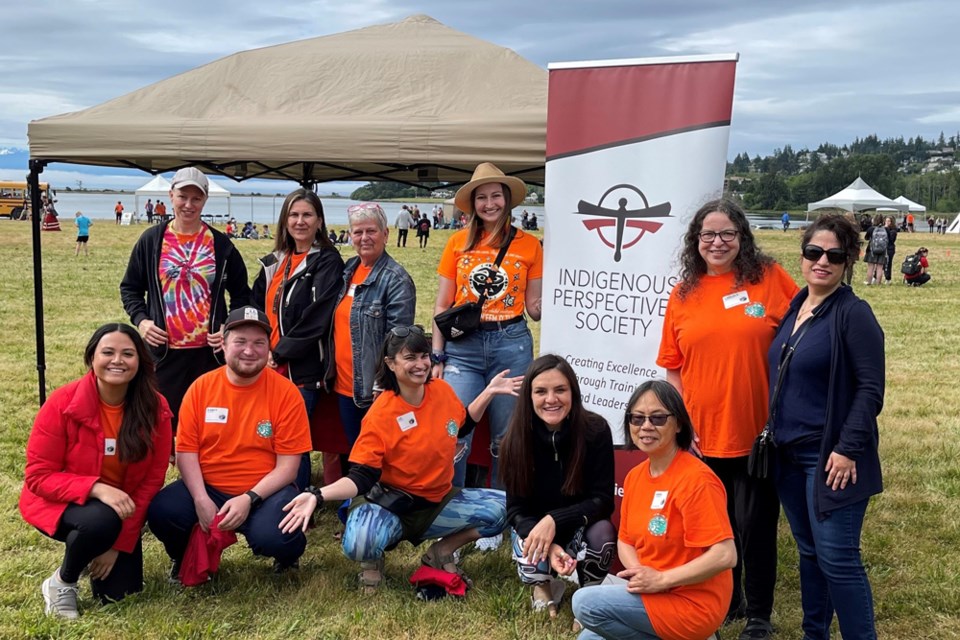For Rachelle Dallaire, leading a nearly 30-year-old non-profit aimed at strengthening Indigenous welfare across ÎÚÑ»´«Ã½ was once cloaked in annual uncertainty.
The hustles of constant fundraising, door-knocking, and grant applications were unavoidable in maintaining a consistent budget for training social workers and caregivers for Indigenous children and families and teaching people to understand Indigenous worldviews.
Since 1994, the (IPS) – which began as the small but mighty Caring for First Nations Children Society – has been delivering culturally sensitive training, research and policy support to Indigenous Child and Family Serving agencies and the provincial and federal governments.
“Community partners did their very best to support us, but they also had their own organizational needs, so they had limited capacity,” says Dallaire, executive director of the IPS, based in Greater Victoria.
Then, nearly a decade ago, Dallaire realized that if IPS’s services were to meet the soaring demand for culturally relevant social workers, her steadfast team would need other ways to make revenue.
Commercial strategies, community objectives
The path forward was to become a social enterprise and use commercial strategies for profound social change.
Dallaire consulted, a leadership training program that helps organizations diversify revenue streams. Her team learned to create a business department, hire a financial coach, and develop pricing and marketing plans.
She notes dramatic results emerged once the society fully rebranded and expanded its cultural training programs.
The IPS is now a fully accredited enterprise, with an extension of training and consulting services for everyone who wants an equitable society for Indigenous peoples.
It offers tailored training in restorative justice, leadership and governance, child and family services, and more through classes and group work that celebrates the customs of all Nations. It is consulted by all levels of government, nonprofits, companies and individuals across ÎÚÑ»´«Ã½
Fostering a better future
Dallaire says the IPS has become necessary for a country grappling with a colonial legacy of cultural erasure and genocide, and she highly recommends enterprise strategies for struggling non-profits – especially groups that support traditionally underserved communities like First Nations, Inuit, and Métis.
“The biggest opportunity for us has been self-determination,” she explains. “We have the ability to expend the revenue in ways that we decide is best.”
Like many who've taken IPS’s training, Shelley Jorde from the South Vancouver Neighborhood House says she’s grown personally while completing modules at her own pace.
“This experience has made me want to become a better ally and continue my personal journey towards Truth and Reconciliation. I would wholeheartedly recommend [it],” she describes.
Dallaire says positive feedback truly inspires her.
“Every time we deliver one of our services, we participate in shaping the world to be inclusive and equitable,” she says.
This year, the IPS received a Community Grant from the for a new full-day course called For people aged 14 to 25, the course delves into the intergenerational impacts of colonialism on diverse youth and how to be a meaningful ally.
Moving forward, Dallaire says she’s working toward IPS becoming an accredited post-secondary institution recognized by mainstream society.
She says that with confidence and a crucial mission, the IPS will continue to spread wisdom and knowledge to help shape a just society, now and for future generations.



